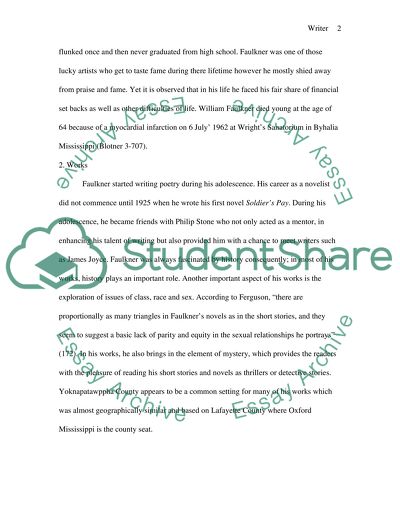Cite this document
(“William Cuthbert Faulkner Research Paper Example | Topics and Well Written Essays - 1000 words”, n.d.)
William Cuthbert Faulkner Research Paper Example | Topics and Well Written Essays - 1000 words. Retrieved from https://studentshare.org/literature/1448848-william-faulkners-life-concentrating
William Cuthbert Faulkner Research Paper Example | Topics and Well Written Essays - 1000 words. Retrieved from https://studentshare.org/literature/1448848-william-faulkners-life-concentrating
(William Cuthbert Faulkner Research Paper Example | Topics and Well Written Essays - 1000 Words)
William Cuthbert Faulkner Research Paper Example | Topics and Well Written Essays - 1000 Words. https://studentshare.org/literature/1448848-william-faulkners-life-concentrating.
William Cuthbert Faulkner Research Paper Example | Topics and Well Written Essays - 1000 Words. https://studentshare.org/literature/1448848-william-faulkners-life-concentrating.
“William Cuthbert Faulkner Research Paper Example | Topics and Well Written Essays - 1000 Words”, n.d. https://studentshare.org/literature/1448848-william-faulkners-life-concentrating.


